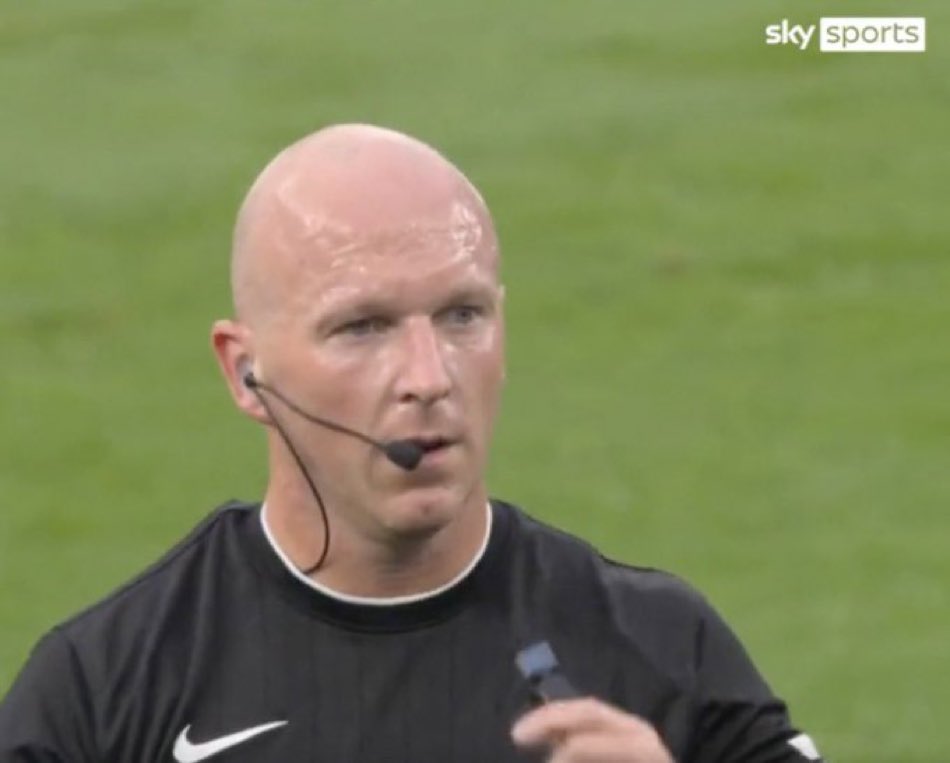Hooper’s comments, made shortly after FIFA’s announcement regarding his officiating, have sparked debate over the integrity and transparency of refereeing within high-stakes matches. His suggestion that external influences may have affected his judgment has raised eyebrows across the football community, prompting discussions about how referees are managed and what measures should be in place to ensure unbiased decision-making.
FIFA’s announcement, while not detailing the specifics of Hooper’s officiating performance, implied concerns about the quality of the refereeing in the Chelsea-Newcastle game. The match itself was rife with contentious moments, notably a questionable penalty decision and several calls that left both teams frustrated. However, Hooper’s post-announcement remarks took the controversy to a new level. He hinted that certain decisions during the game were not entirely his own, alluding to external factors that may have impacted his calls on the field.
These revelations have led to speculation about the nature of the “external factors” Hooper referenced. Some fans and analysts wonder whether VAR officials or other influences contributed to his decision-making. Hooper’s comments suggest that referees may sometimes feel pressured to make certain calls or adhere to decisions passed down by others, rather than relying solely on their own judgment. This possibility has added a layer of concern among those who value transparency in officiating, as it raises questions about whether referees are truly acting independently on the pitch.
Reactions to Hooper’s statement have been swift and widespread. Chelsea and Newcastle fans alike have taken to social media to express their opinions, with many voicing concerns over the fairness of officiating in the Premier League. Supporters argue that if referees are indeed under external pressures, it undermines the integrity of the sport and leaves room for unfair advantages. Others have suggested that Hooper’s comments warrant further investigation to ensure that officiating practices are consistent and impartial across the league.
Football analysts and former referees have also joined the discussion, emphasizing the importance of clarity and autonomy in refereeing. Many believe that referees should have the final say in all in-game decisions and that their independence is essential for maintaining trust in the sport. Some experts are calling for stricter protocols regarding VAR and officiating interactions to minimize any external interference that could potentially influence on-field decisions.
The Premier League and FIFA have faced ongoing scrutiny over the use of VAR since its introduction, with fans and players frequently questioning its consistency and transparency. This latest incident involving Hooper highlights these ongoing issues, fueling calls for a reassessment of how VAR and referees work together. Critics argue that for VAR to be effective, it should assist referees without undermining their authority or independence.
FIFA has not yet provided an official response to Hooper’s comments, but many expect that further clarification will follow. Given the public reaction, there is growing pressure on both the Premier League and FIFA to address the situation and outline measures that ensure referees can operate without undue influence. If FIFA and the league fail to address these concerns, they risk further erosion of trust in the officiating system, potentially impacting the credibility of future matches.
As the controversy unfolds, many hope this incident will lead to reforms that uphold the principles of fairness and independence in football officiating. The incident serves as a reminder of the complexities and challenges that referees face in high-pressure environments, especially with the added influence of VAR and the expectations of millions of fans. For now, Simon Hooper’s comments have cast a spotlight on a critical aspect of the game, and the football community will be watching closely to see how FIFA and the Premier League respond to these concerns.
